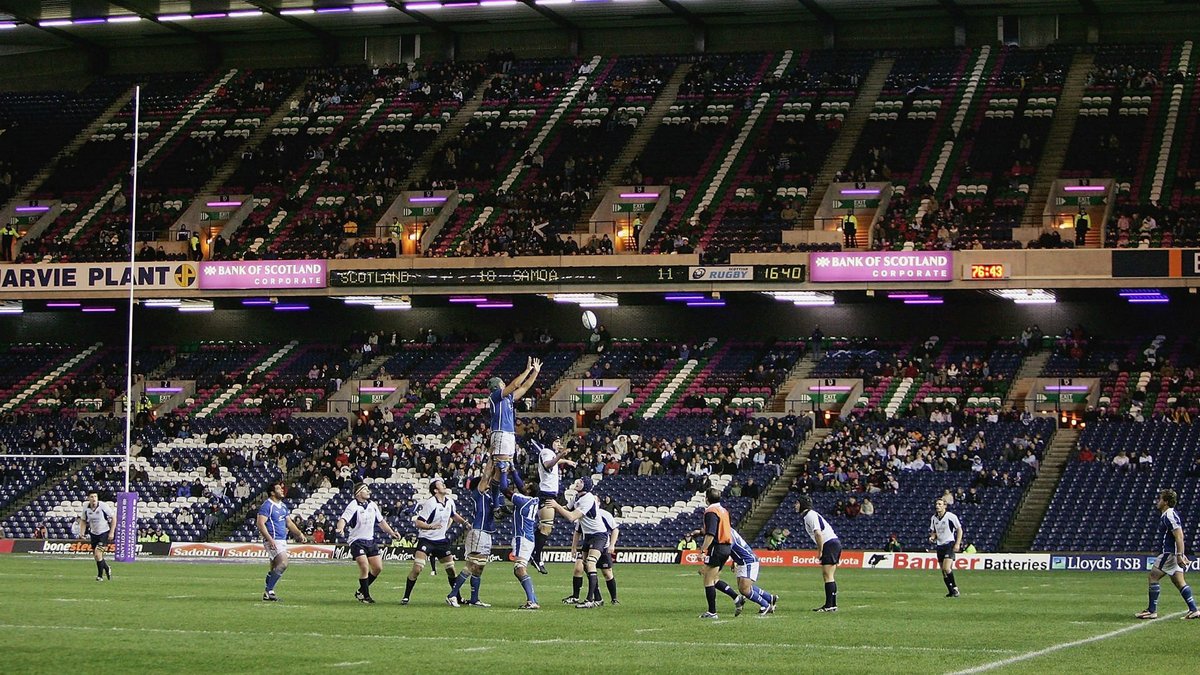Scottish Rugby report multi-million pound, record breaking financial results...again

Scottish Rugby has generated one of the strongest operating results for the game in its history – according to the organisation who released its 2017/18 Annual Report has confirmed today.
A record turnover of £57.2million was achieved over the 2017/18 season, an 11% rise of £5.8million on the previous season and equating to a 63% rise in income growth since 2011.
This in turn has generated a surplus of £1.8million, among the highest ever recorded for the organisation.
The record-breaking financial results have also enabled Scottish Rugby to record its lowest average debt in the professional era.
A figure of £2.4million has been reported, a drop of £2.8million on the average debt reported in the previous year (2016/17), creating a platform for increasing sums of money to be reinvested into the grassroots game.
Continue watching below…
Scottish Rugby Chairman, Colin Grassie, said: “I’m pleased to report this year’s turnover of £57.2m marks an increase of £5.8m on the previous year.
“These results provide financial stability and have been driven by growth in broadcast revenue, as well as hospitality and other events at BT Murrayfield.
“On the pitch we have quality coaches, staff and a technical blueprint in place that is helping to drive the success of our national teams and develop our young players.”
The increase in turnover was achieved through strong broadcast revenues of £15.2m and a rise in other operating income to £18.9m in relation to increased commercialisation of the Guinness PRO14, higher match-day hospitality and game-day related sales at BT Murrayfield, non-matchday events and income from British & Irish Lions.
Despite one less Six Nations Championship game last season, ticketing income dropped only slightly to £12.3m as a result of higher average game attendances. Commercial income also recorded a slight fall to £10.8m, reflecting the tough sponsorship market.
The consistent improving performances of the Scotland national team has driven the commercial gains, reflected through five consecutive sell-out matches at BT Murrayfield in the past season and the 553,969 tickets bought to watch professional rugby in Scotland, 335,720 to watch the Scotland national team.
continue watching below…
Scottish Rugby Chief Executive, Mark Dodson, said: “Rugby in Scotland is enjoying a resurgence at international and professional level and the support for these teams has never been stronger. This has contributed to the strong financial position we can report this year, which will help us to continue to move the game forward at all levels.
“We are committing record levels of investment into the grassroots game in Scotland in order to create a sustainable environment and help improve the standards of rugby being played across the board.
“We continue to build our brand on the global stage and find ourselves in a strong position as we head into Rugby World Cup 2019.”
The sponsorship renewal of BT, extension of Tennent’s and continued support from Macron and new partners helped underpin the positive progress being made on the commercial side.
The results will support the ongoing and increasing investment in grassroots rugby in Scotland to deliver the Agenda 3 programme of support to clubs to help continue work in participation, performance and improved sustainability, as announced at last season’s AGM.
Following four years of support from Principal Partner BT Scottish Rugby is also committing to continuing, and fully funding itself, the highly important Club Sustainability Fund, which saw £1.6million invested into capital, revenue and fast-track projects, over the past four years.
A total of 31 clubs in Scotland have been supported for capital developments through the Club Sustainability Fund towards projects with overall costs of £15.6million during the four years of the previous funding term.
Across all three funding streams of the fund, 167 clubs in Scotland have received financial support for projects, initiatives and improvements.
Scottish Rugby’s Chief Operating Officer, Dominic McKay, said: “Commercial success is vital in order to develop rugby in Scotland from the grassroots game to the international stage.
This season our turnover reached a record £57.2m, building on the growth from previous seasons.
“This increase in turnover has been enhanced by a growing fan base for rugby in Scotland and last season we welcomed more than 500,000 fans to our international and professional games. In terms of Scotland crowds, it was the best season ever with 335,720 attending, beating last year’s record despite hosting fewer matches.
“BT Murrayfield continues to be a hugely popular venue for concerts and events and I’m delighted our family of sponsors is growing and existing partners have chosen to extend their time with us further.”
The Annual Report also highlights the excellent work being done to develop rugby in Scotland for the future.
Some 872 teams from 104 clubs, 150 state schools and 25 independent schools compete in the Mitsubishi Motors Schools & Youth Conferences. Now in its third year, the conferences are going from strength to strength, with 2,626 games played (a rise of 16%).
The work with young players is supported nationally through the delivery of over 24,000 rugby sessions by Development Officers last season, across primary schools, secondary schools and clubs.
Strong growth is also being seen in the women and girls’ game. Last season there was a 19% rise in women’s teams to 62.
More than 200 games were played at U15 and U18 level and nearly 1000 female players have been introduced to the sport through Scottish Rugby’s #BeTheBestYou campaign.










































































